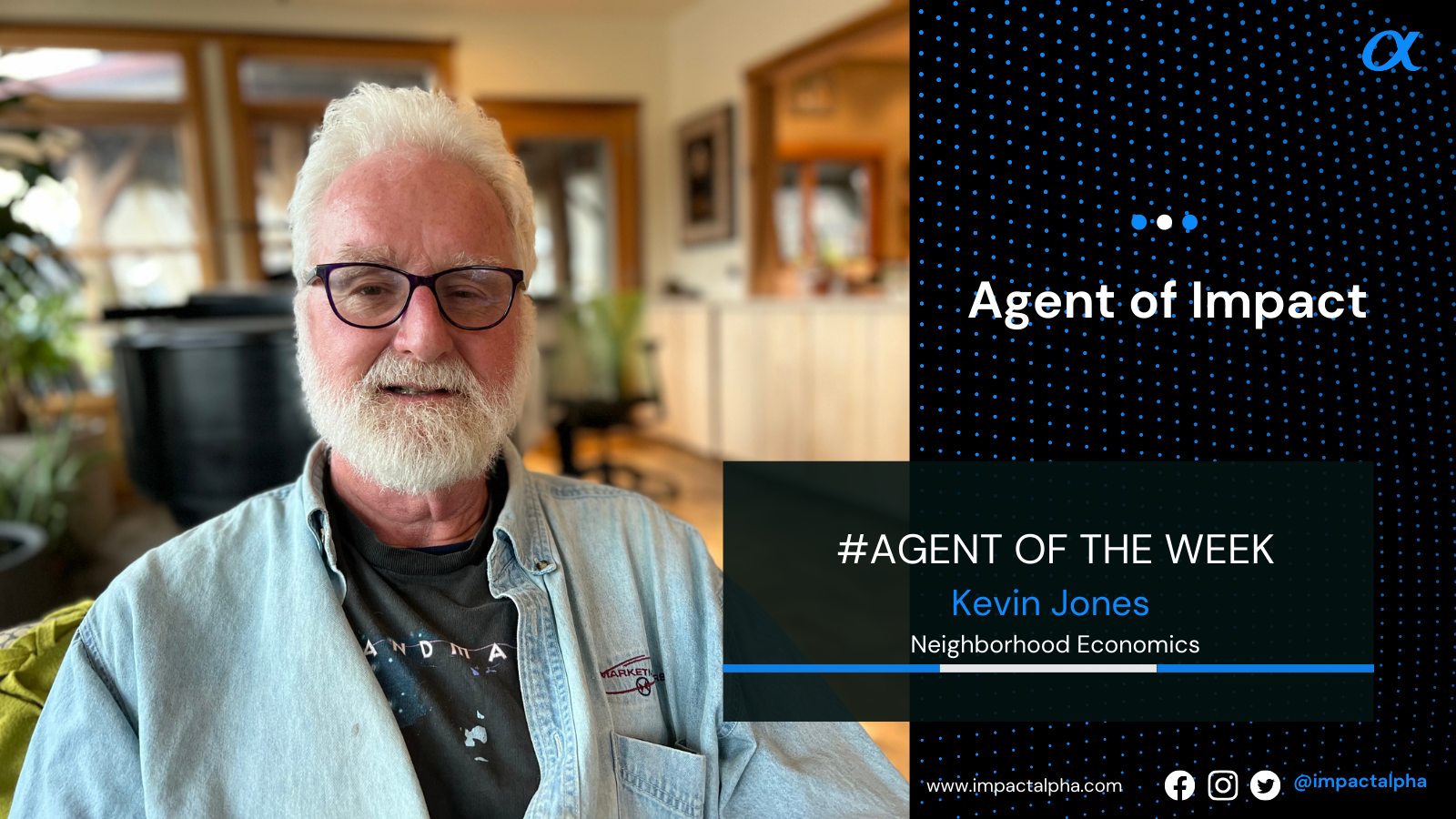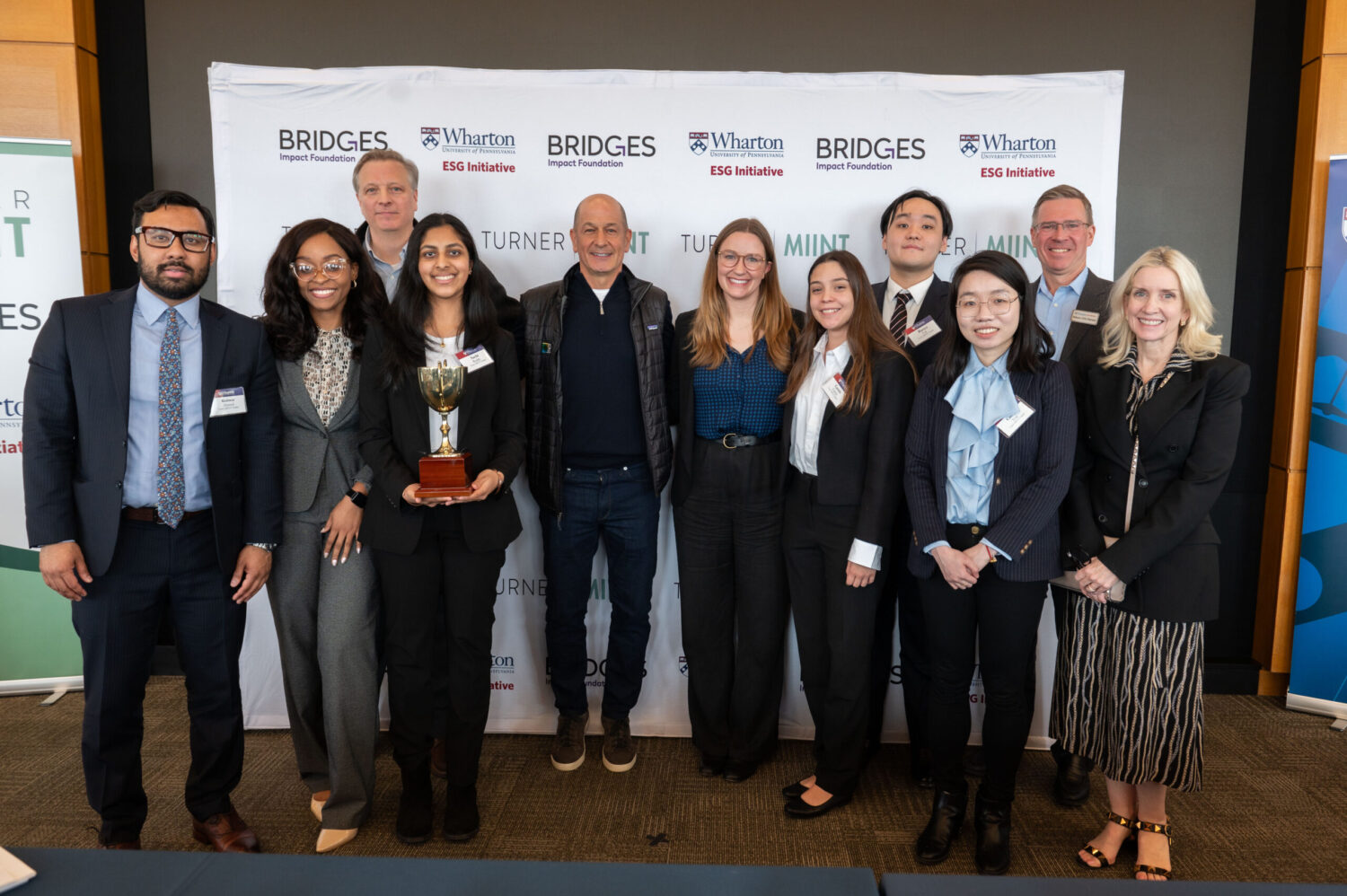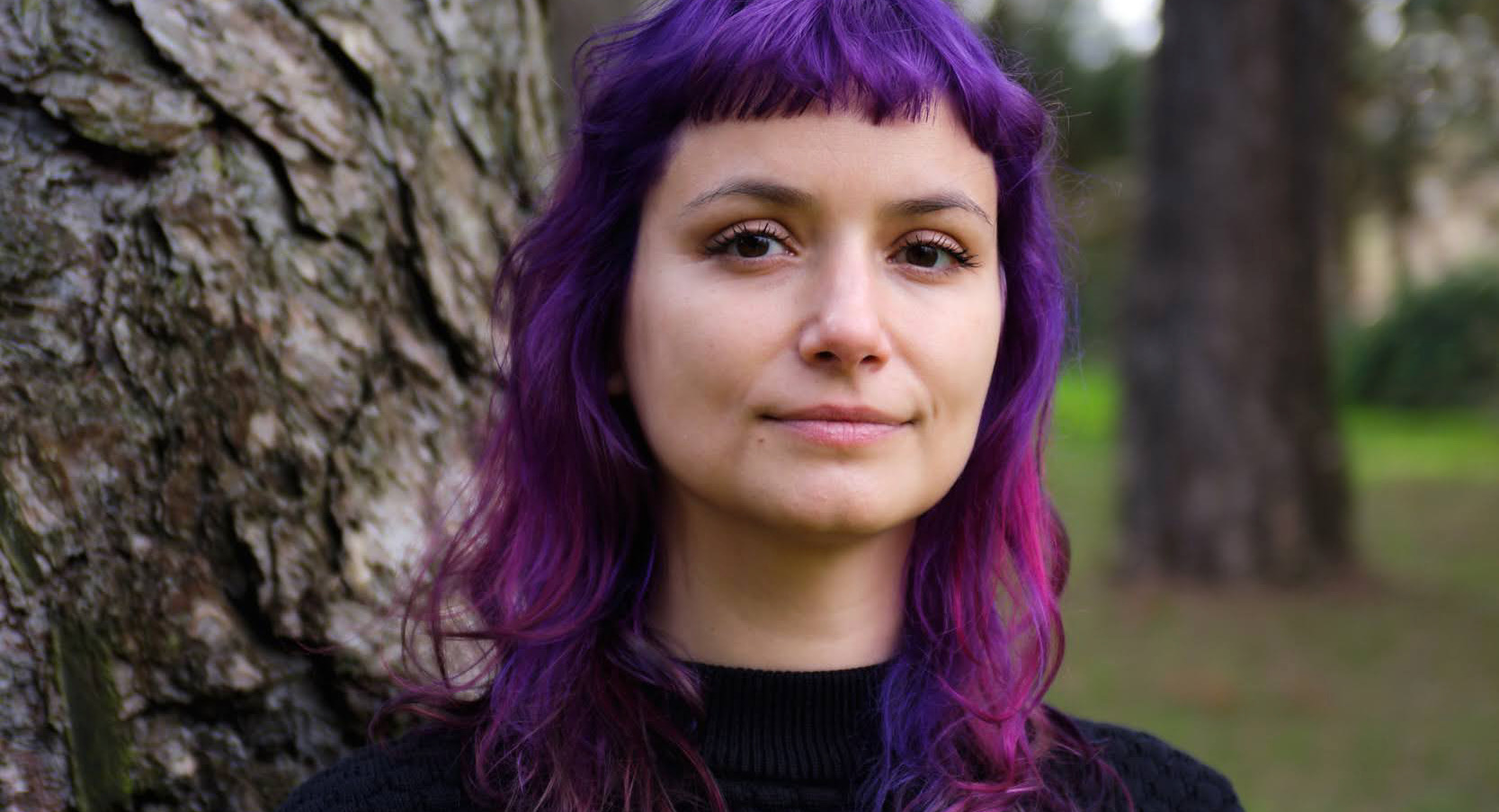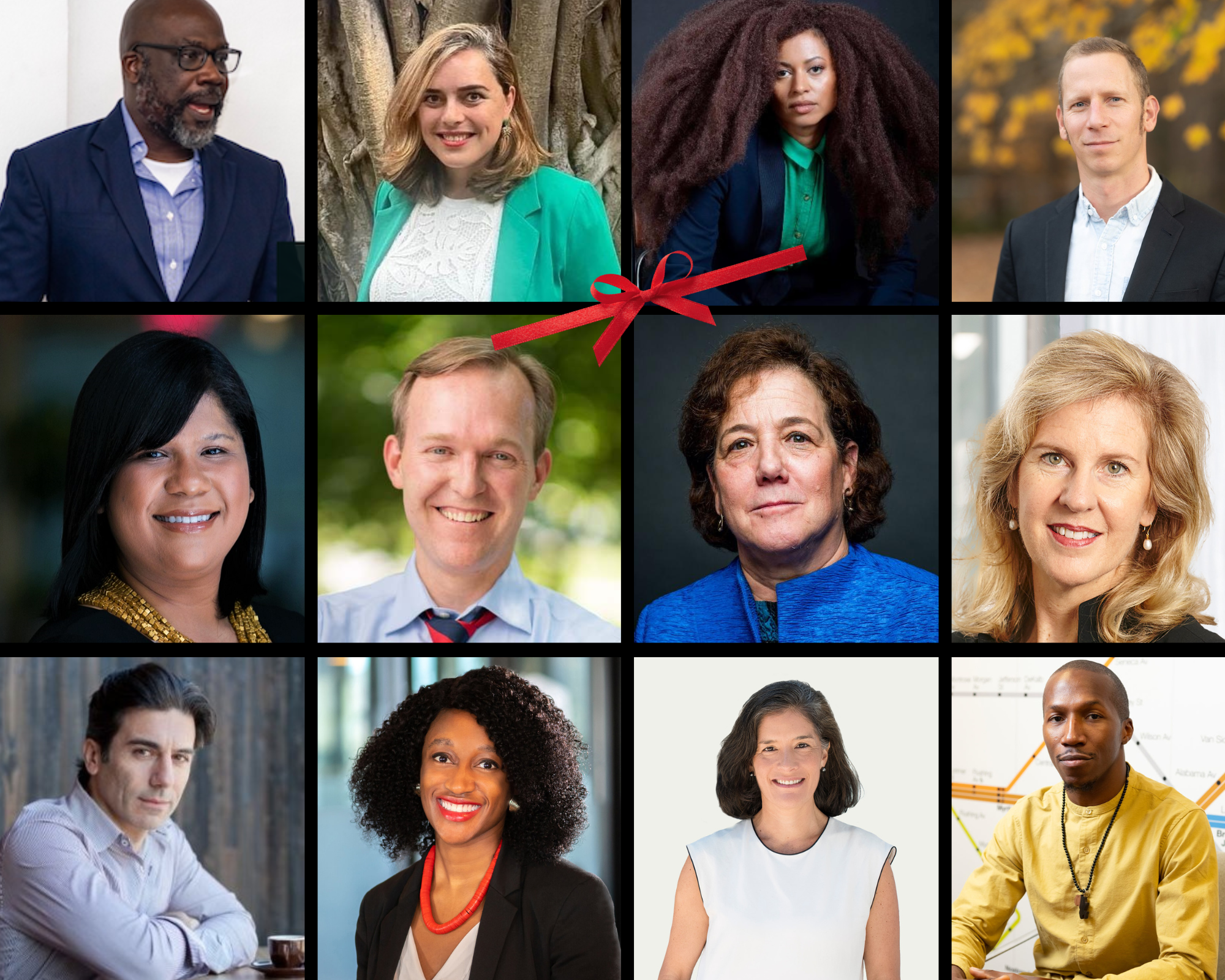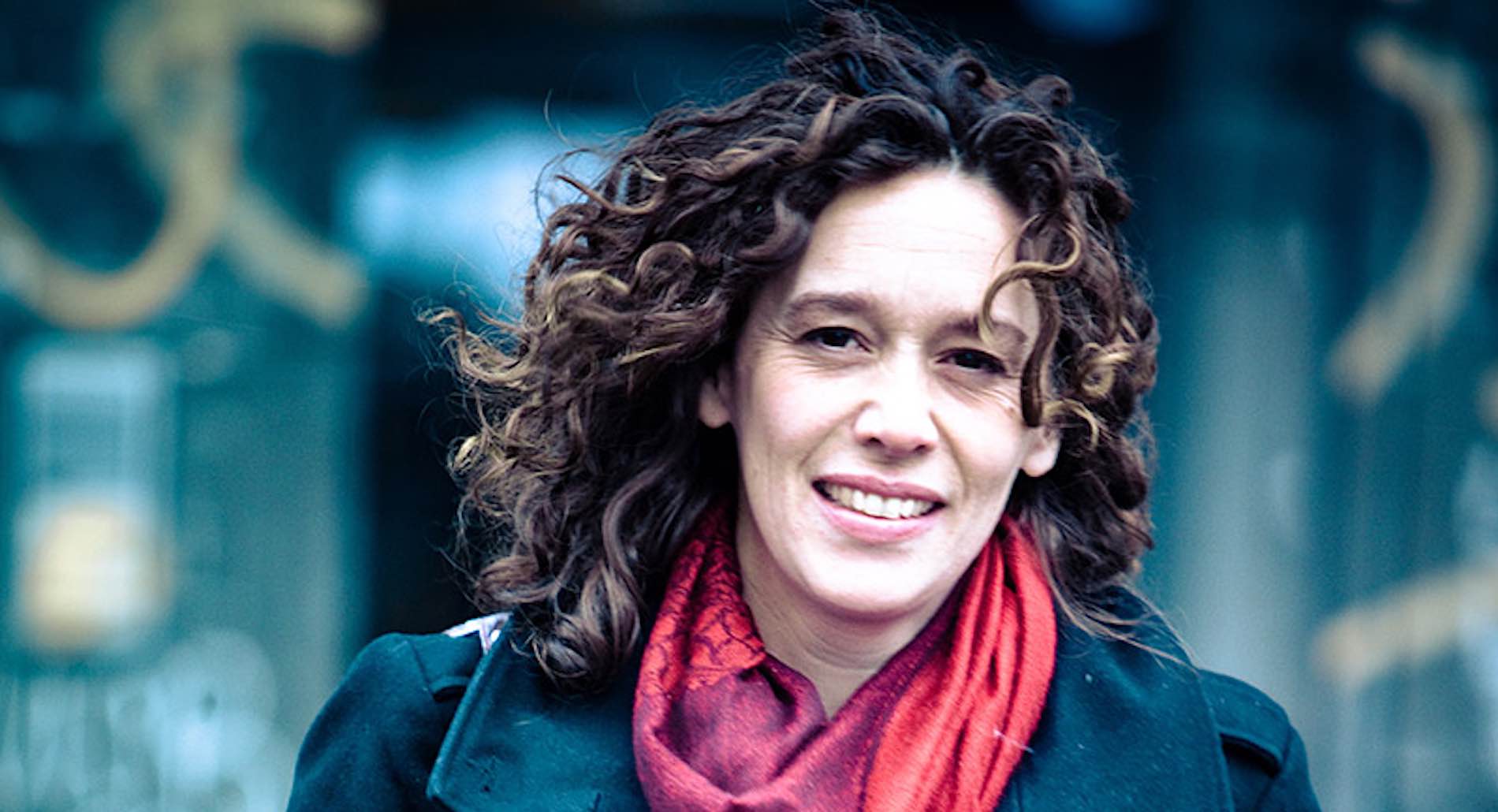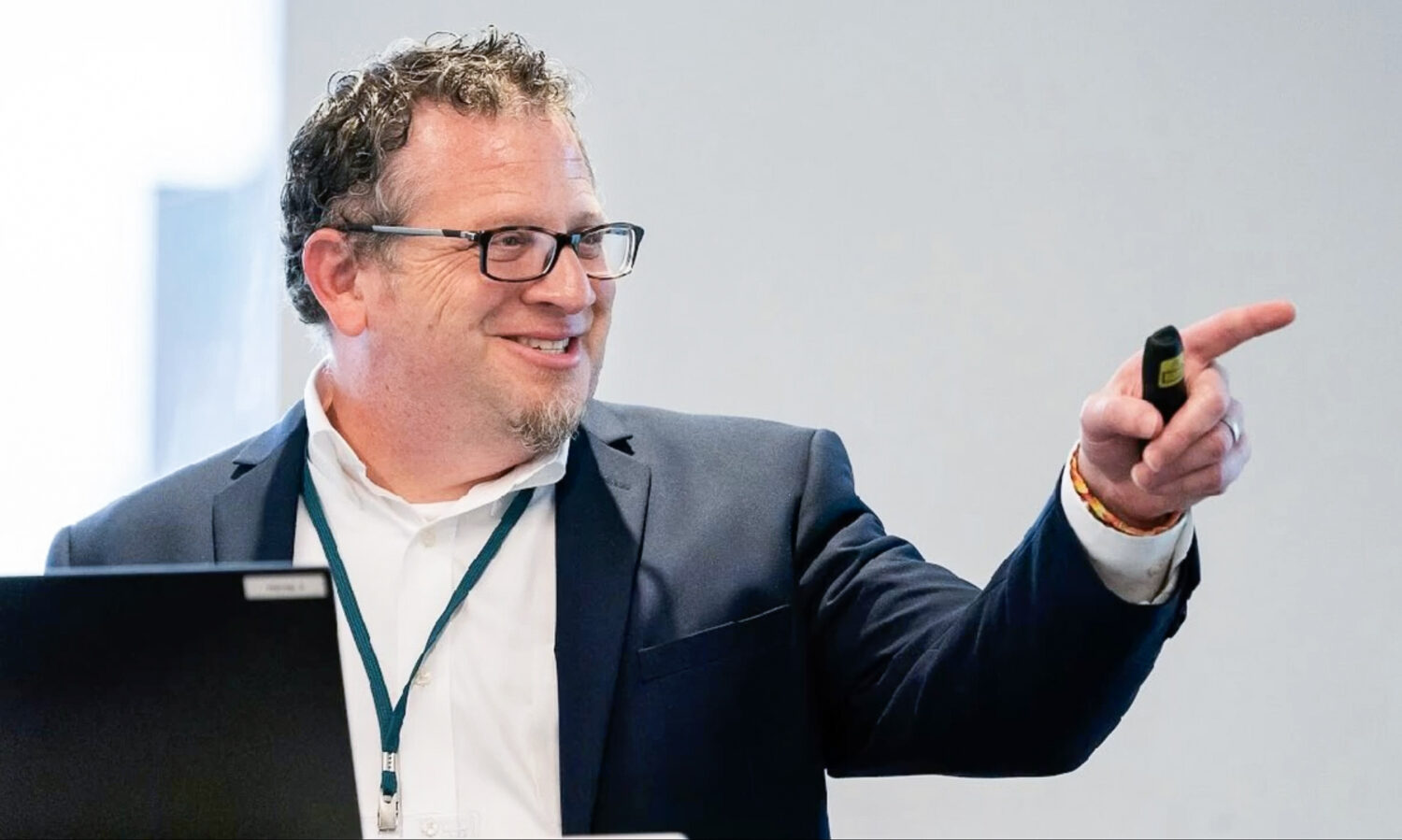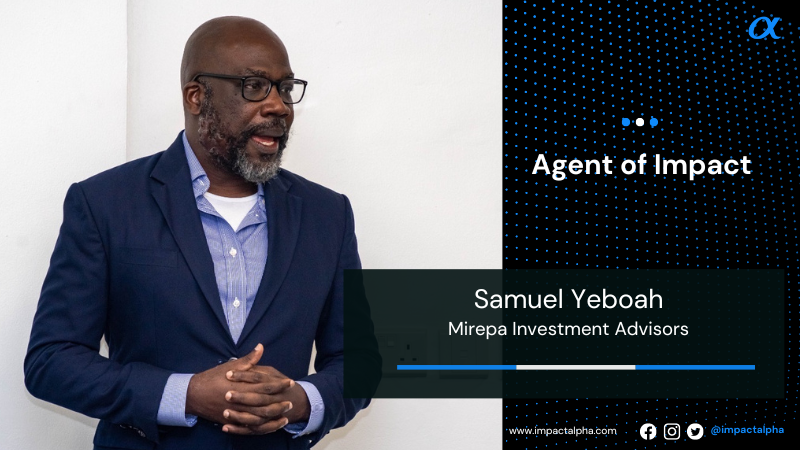ImpactAlpha, May 6 – Kevin Jones played an early role in convening the disparate, and sometimes unruly, tribes of impact investing under the tents of the SOCAP conference, which was sold in 2017. Jones was in Indianapolis this week, again bringing together “strangers who could become unlikely allies” in shifting capital and power.
This time, Jones is trying to mobilize local church endowments for investments in neighborhoods and entrepreneurs that don’t often see that kind of capital. The Neighborhood Economics gathering was designed as a workshop for church officials, foundation executives and “localists, people who want to invest to create a community that their grandchildren can come back to,” Jones told ImpactAlpha. “Those are three kinds of capital, and they’re learning to work together on local problems,” including Indianapolis’ high rates of eviction. Catalytic capital, he says, “is the capital that’s needed for the folks that don’t typically get it.”
Jones grew up in the Bay Area, cut his teeth as a newspaper publisher in Mississippi, made some money in the dot-com era, built and sold SOCAP, and now lives on a farm in Asheville, N.C. “I’m a serial entrepreneur, successful eight times with my wife,” Rosa Lee Harden, says Jones. “Unsuccessful the time I didn’t have her in the business.”
In North Carolina, Jones and Harden have helped pilot a $2.8 million Community Equity Fund to backstop businesses that don’t qualify for loans. “The big problem is that there’s all these loan funds to try to reach marginalized communities and they don’t get out the door, because the people don’t have friends and family funding,” Jones said. The answer: “Equity before debt, that’s paid back by revenue share.”
Jones is excited about Neighborhood Investment Trusts – “really, neighbors investing in neighbors to save Black Wall Streets from predatory hedge funds that want to displace them,” Jones says. He has helped create trusts in Baltimore, Chicago, Seattle, Kansas City, Los Angeles, Atlanta and elsewhere. “All these isolated innovations are discovering that they have so much in common that they didn’t realize,” Jones says. “And when they find that they’re not alone, they get really energized.”

